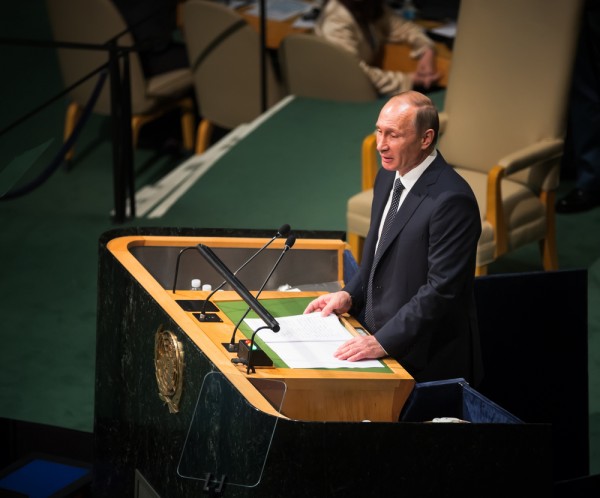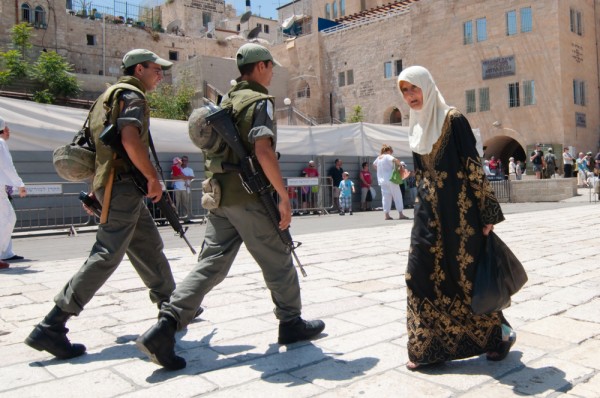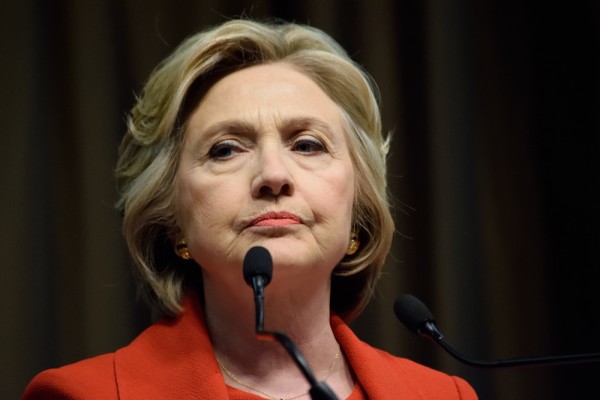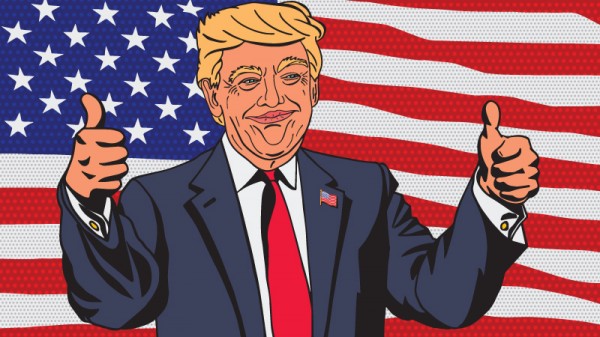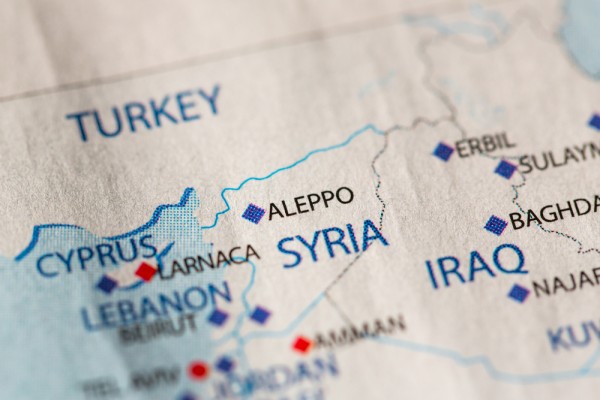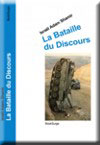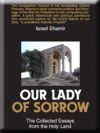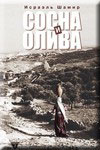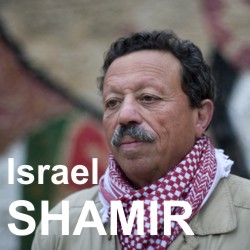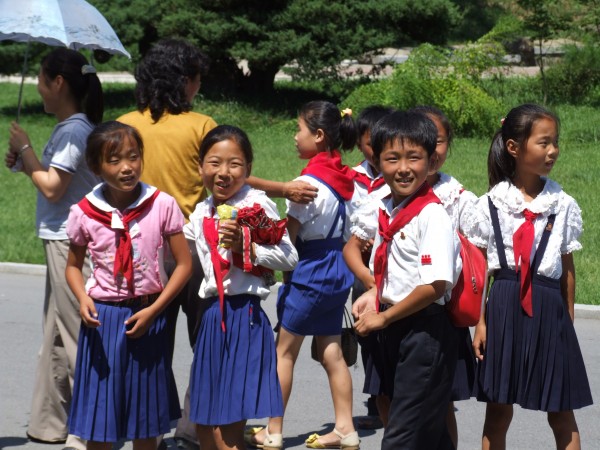
A colossal mass demonstration, well choreographed to the level of ballet but with tens of thousands of participants in the centre of Pyongyang completed and sealed an important and unusual political event in this remote and isolated land of North Korea – the Party Congress. The demo has been followed by a show, so big that it could not be staged anywhere else. Magnificient fireworks, twenty thousand men and women dancing with torches in the darkness of Pyongyang night – this show I’ll remember forever. For the Koreans it was not a show, but a declaration of their loyalty to the state and the leader – or, perhaps, even for them it was just a night dance. Who knows?
A Party Congress is a rare bird in N Korea. Uncalled for many years, actually since 1980, the Congress, the top body of the ruling Workers’ Party, gathered to confirm consolidation of power in the hands of the new ruler, Kim Jong-Un, or Kim III, as Western media calls him. He was duly proclaimed the Party Chairman, the position previously held by his father Kim Jong-Il, and before him by his grandfather Kim Il-Sung.
The people were visibly excited to see the young Kim, and even passing by the tribunes they tried to linger and wave flowers and banners in his direction. Only rock stars get that much affection in the West. This is definitely a turning point: the hard bitter days are over, now things will improve.
The generation change is a tricky affair anywhere (the USSR failed it), but it seems that Kim III managed it successfully. He came to power after premature death of his father, a plump and soft-looking “Baby Kim”, with his Swiss schooling, an object of many South Korean jokes and scorn. But he has not been chosen and groomed and preferred over his two elder brothers by his father just for his kind appearance. The young Kim III pushed forward with modernisation of the country, with reshaping and rebuilding Pyongyang, with massive civil engineering projects, with improving the lot of his citizens – and with the nuclear program.
During first four years of his rule, North Korea became a full-fledged nuclear power, exploded an H-bomb last January, delivered a satellite to the orbit around the earth; living standards improved and mass housing program has been launched. Otherwise, Kim’s rule could be characterised by words “ Continuity and Modernisation” .
Why the Party Congress has been assembled just now, what are the plans and ideas of Korean leadership, what can we expect from them? All the world was curious, so was I, and I eagerly (though with some trepidation) accepted their invitation. I have been exceedingly well received by these hospitable people, so I can dispel your fears: the North Koreans aren’t brainwashed zombies, but perfectly human, though they belong to a very distinct and different culture.
On a human level, they produce and drink very good beer. Whenever I had an occasion, I had a couple of beers with locals in a local pub, where all tried to offer me another mug of their perfect natural brew. The Koreans are cautious but not paranoid in their contacts with foreigners, and they are fond of beer.
There were a lot of bewildered journalists; they tried to gather what’s going on, afraid to miss a story but meeting a frustrating stonewalling. The N Koreans are indeed very secretive: to the last minute, we did not know when the Congress is about to finish, and what do they discuss. The BBC team has been deported from the country for reporting an upsetting gossip they probably invented or picked from the S Koreans.
By listening to some N Koreans and to diplomats stationed in Pyongyang, I learned that they expect that Kim will retire some of the old comrades and promote the younger lot, thus rejuvenating this unusual socialist state. Korea watchers noticed the possible rise of relatively young people who occupied lower rings of the hierarchy: Hwan Byon So, Tsoi Ren He, and the ideologist of the Party, Kim Gi Nam.
The theme of Continuity and Modernisation has been manifested even in Kim’s appearance: he appeared in a dark double-breasted jacket and an elegant light tie instead of Mao-style military wear usual for Korean officials. For the Koreans, this jacket was to remind of Kim I, his venerated grandfather, who first appeared in a very similar wear in the recently liberated Pyongyang. He was loth to appear in the Russian military uniform he donned previously, and preferred the civilian jacket.
This point has to be briefly elaborated. The Koreans are fiercely independent folk, ethnocentric to the extreme, nationalists for whom Korea is above all and the Koreans are a race apart. Actually, in this (and many other) aspect they are quite similar to the Japanese, their neighbours and former colonial masters for some forty years. But the Japanese went through seventy years of Americanization, westernization, liberalization and demilitarization after their defeat in 1945. The unreconstructed Koreans retained their national pride, so they are more similar to the Japanese of 1930s.
The Korean Communists came to power in the North thanks to the Red Army. After defeating the Japanese Army of Manchuria in August 1945, the Russians established a Communist government in Pyongyang, as was their wont in every capital they seized in the war. Their man was Kim Il Sung, at the time a Red Army mayor, and a native of Korea. But the Korean Communists did not remain in Moscow’s thrall for any length of time. By 1956, they became fully independent – and they re-wrote history to fit their ideas. In their version of history as taught in their schools and explained in their museums, they themselves liberated their country from the Japanese rule, while the Russians were of some valuable assistance.
(According to their version, they themselves defeated the Americans in the Korean war, while the Chinese and the Russians “had sent some volunteers”. This is annoying for the Russians and Chinese who bore the brunt of the war, but they understand the Korean feelings and bite the bullet without argument or complaint).
Kim I in his jacket had been a potent symbol of Korean independence and of their own and unique way to their own brand of socialism. Kim III is very similar to his grandfather by portrait likeness, and even more so by his voice. The jacket of Kim was supposed to emphasize this similarity and continuity, while the elegant tie has been a tribute to modernity.
He promised to deliver “guns AND butter” to his citizens, i. e. to improve their lot while keeping the defence stance. More importantly, Kim had used the Party Congress and the universal interest it generated to call for peace with the US and his neighbours Japan and South Korea.
He said Korea is a responsible nuclear power; the Koreans will abide by the treaty of non-proliferation (NPT) as a nuclear power, meaning it will not share its nuclear military technology with non-nuclear states, and it will not use its nuclear weapons unless attacked by nuclear weapons. This is a message of peace-seeking: other nuclear states, the US, Russia and Israel do not promise to avoid using nuclear weapons even in case of a conventional attack.
“Kim sends a message of peace,” a high ranking diplomat stationed in Pyongyang told me. “Alas, it was misunderstood or distorted by the news agencies. They quoted him out of context and provided misleading headlines, in order to demonise him.”
Kim called for nuclear disarmament, but a general one, not only for Korea. Indeed while signing the NPT, the nuclear powers undertook to strive for general nuclear disarmament and for creation of the world free of nuclear weapons. This undertaking remained a dead letter. The last Soviet president Mikhail Gorbachev made some steps in this direction, but the US used his idealism to increase the power gap between the two states.
Recently the US embarked on an ambitious program of total renewal of their nuclear facilities. Pentagon asked for the mindboggling sum of one trillion dollars for this program. At the same time, the US demands nuclear disarmament of N Korea referring to the same NPT they are in breach of. Since the NPT has been signed, some states became nuclear powers – Israel, India, Pakistan. What’s wrong with N Korea developing nuclear weapons? The Koreans speak of double standards and add: if other states will give up their nukes, so shall we.
A Russian diplomat in Pyongyang told me: perhaps we should accept the reality that DPRK became a nuclear power. It would not have happened if the US and South Korea did not threaten the North with war. Just a few months ago, the war in Korea seemed imminent, when the US and their S Korean allies, some four hundred thousand troops altogether, practiced the conquest of Pyongyang and elimination of the NK government. The N Koreans went ballistic, and I can’t blame them, – he said. – If we were now to land half a million soldiers in Cuba and begin to practice how to sack Washington and destroy the White House, the US fleet would come all over Cuba in a jiffy. But in Korea, the Americans just increased their involvement by bringing in a nuclear armed aircraft carrier. We definitely understand why N Korean leadership is worried.
This response is important because Russia and China supported the UN Security Council resolution imposing sanctions on N Korea. Now, apparently, the Russians have second thoughts. The relations between Russia and N Korea never were cordial: N Korea has been too independent for Moscow likes. Still, they were cool but friendly. The Russians supported the sanctions at China’s request. The Chinese supported the sanctions to ingratiate themselves with the US and with S Korea, an important business partner. There is an additional factor: possible unification of Korea.
At the Party Congress, the young leader of N Korea had called upon his S Korean counterpart: let us renew the old idea of uniting two halves of Korea, in one federated state. Germany and Vietnam had already united, we also can do it. The regime difference is not a hindrance: Communist China has reunited with capitalist Hong Kong under the slogan “one country – two regimes”.
The process of unification actually started in year 2000, when the S Korean president Kim Dae Jung visited Pyongyang and met with the N Korean leader Kim Jong Il. He had received that year’s Nobel Prize for Peace. They established a free trade zone, the trains crossed the DMZ border, visits and family reunification began. But the US, the occupying power of S Korea, hated the idea. The S Korean presidents supporting unification have been found dead or jailed. The present S Korean president is definitely against unification. In S Korea, one goes to jail for saying a good word about the North. It is considered “hostile communist propaganda”.
The Chinese do not mind this. Yes, in the Korean war they fought for the unification of Korea, but that was then. Now they do not need a strong and independent-minded neighbour, while united Korea with its Samsung, Daewoo, H-bomb and 80 million population will be definitely a very strong country. For Russia, this is not a consideration. Even an extra strong Korea is not a threat for them. They agreed with China and the US because they support the NPT. But perhaps this is the time to change some rules, they muse.
DPR Korea is thoroughly demonised. It is supposed to be the poorest country (Wikipedia); hell on earth, its national airline “the world’s worst”, its cities shambles. The demonisers did a good service for N Korea as my expectations were so low that I immensely enjoyed every minute and every meal. Actually Air Koryo , the native airline, is not too bad and comparable to provincial airlines of its neighbours Russia and China.
Pyongyang airport is eerie if anything. It is big, modern, advanced, marble-floored, immaculately clean; our old reliable TU-154 looked like a rusty bus on its perfect tarmac. Its many immigration booths primed ready for an endless stream of arrival passengers let me in smoothly, faster than Heathrow, and the customs delayed me just for a moment. The customs officer asked me for the password to check my laptop, but she did not insist when I demurred. But this big international Terminal Two was empty of people; instead of a hundred, just two flights were showing on the tableau, a Beijing and a Vladivostok flight.
I stayed in one of the best hotels, 45-story high twin towers of Koryo Hotel. This place, normally catering to hundreds and hundreds of tourists, is practically empty. Just a few tiny groups, a couple of Dutch and a few Japanese friends of Korea came to breakfast.
N Korea is under sanctions, the heaviest sanctions ever applied by the UN SC against any state. Such sanctions would send any country reeling. They are construed to cause collapse, and are just marginally better than an all-out war. The sanctions are similar to the interdict the medieval popes applied to rebellious kings. Such an interdict had sent a stubborn emperor begging to Canossa.
Pyongyang the capital city is big and modern, even ultra-modern; seeing it from my 30 th floor of a downtown hotel, I thought first of Atlanta, or even Brasilia. There are very few cars, mainly taxis. Private ownership of cars is not allowed. Ostensibly there are two million dwellers, but there are few people on the streets. Where are the people, I asked my gentle host. They are at work, it is working time, he says, somewhat taken aback at my astonishment. After the Party Congress was over, there were more people around: apparently, the citizenry preferred to stay home while the big bosses roamed the capital.
Over the last forty years, I’ve been to many Third-world states in their Socialist stage: to Burma and Tanzania, Angola and Vietnam, Laos and Cuba. If we are to compare them with neighbouring non-Socialist states, they were inexpensive, generous with public space, kids-friendly, scarce of consumer goods, poor of communications, overcharging foreigners, currency-fiddling, and rather shabby. I tended to consider this shabbiness an unavoidable feature of Third World socialism.
North Korea is not shabby, at least Pyongyang is not. The city is built on a large, even magnificent scale, with broad avenues, neat traffic policewomen in brash uniforms overseeing the roads and smartly saluting the passing cars, with imposing buildings and monuments that would shame those of Washington DC. The most impressive buildings were erected in the last few years. There are new apartment high-rise blocks in prime locations instead of old Soviet-style five-story tenements. Such apartments would cost over million dollars apiece in any major Western city; they weren’t sold but distributed for free, mainly to scientists and teachers. At least, so they say.
Last year, a fantastic and lavish Science and Study Centre had been build on spacious grounds. Perfect floor and walls, electronic gates, hundreds of computers, models and graphics explaining various sciences would make any city proud. Its purpose is to encourage kids to become scientists, pure and simple. Sure, incredible buildings were erected within last ten years in many parts of the globe, as the new-rich countries discover the joys of modern architecture as never before. Dubai, Baku, Moscow created new wonders. Pyongyang is on the similar level, on the cutting edge of new architecture.
There are no older buildings at all. It seems that the city has been designed and created anew like a Communist Brasilia. I always prefer old to new, but in this particular case, there is not much to regret. Pyongyang has been erased and hastily rebuilt a few times, most notably in the Korean war 1950-1953, when the US bombers did not leave a single building standing.
The American command “turned its fury on all standing structures that might shield the Chinese from the cold; cities and towns all over North Korea went up in flames <until> Pyongyang resembled Hiroshima”, says Encyclopaedia Britannica . The US dropped more ordnance on defenceless Korea than it did on Germany or Japan. We must keep in mind this most cruel war of the cruel Twentieth Century, for otherwise we can’t understand the Korean character and the recent moves of the Korean leadership.
They are not afraid of war, because they went through the terrible war. Once they seized an American vessel in their waters and jailed the sailors for spying. They disregarded the US threats of an all-out war. At the end, the US president LB Johnson apologised in writing (the only case in the US history they said they are sorry) and the sailors were released, some six months later.
There are a lot of children, many more than you’d expect, a lot of children on the streets, often unaccompanied by an adult. The kids appear clean and neatly dressed, many wear a school uniform or white shirts with red scout ties.
This is a socialist state, I remind myself; they are children-friendly, even children-centred, like “our” states are more attuned for retired folk. Their budget goes for kids, best buildings go for kindergartens and schools.
The Korean women carry their small kids on their backs, like the Japanese did, years ago. Now (and I visited Japan just before coming to N Korea) I haven’t seen even one mother bearing her child on her back in Japan in ten days, while in Korea they are plentiful. There were very few children to be seen in Japan, as opposed to this lot in Korea.
It is not that they have more children. Koreans I asked admitted to have one, rarely two kids. It’s just their kids play outside and walk streets while our kids play inside and under supervision. Our children are immersed in the virtual reality of computer games, their children walk the earth. They are rarely alone: usually, they are in a group. Less frequently, one notices even such small kids that would never be allowed to go unsupervised in our cities, bravely stride along big streets of the city.
As for other qualities, the Koreans are so generous with public space, that it would be considered wasteful and impossible elsewhere. There are many gardens, great vistas, green lawns, vast squares. I do not know another city on earth with such unhindered views as the view across Kim Il-Sung square. You can see for miles.
And now for their less pleasant features. Their communications are quite restricted. They have mobiles, practically everyone has, but a foreigner can’t make a telephone call to a native Korean’s telephone. There is no internet even in an expensive hotel. The Koreans can’t send and receive emails from abroad, can’t access any foreign sites at all, only their own Intranet. They can’t travel abroad, can’t marry foreigners. It is the HermitKingdom, after all.
The consumer goods are rather expensive, with a good average salary about $US400, a good bike or a big TV easily costs over fifteen hundred bucks. Clothes in the shop are drab, like in neighbouring Chinese towns.
The climate is harsh, the soil is poor. Pyongyang has frequent sand storms blowing from GobiDesert from Inner Mongolia. It is too cold or too hot. In short, N Korea is not paradise, and can’t be turned into paradise with any regime. S Korea has a better climate and better soils, but its regime is far from comfortable. I visited S Korea first time in the late seventies, when the state was run by the dictator Park Chung Hee. People would come to me on the street and beg for an invitation to any country abroad to leave their wretched place. There was no freedom, no democracy, no child care, just a dictatorship and the US occupation troops. This is the lot of Koreans, North or South.
If in defence, nuclear power, technology, housing N Korea has reached 21 st century; aesthetically, it is in a class of its own. Their music and songs are a rehash of Soviet revolutionary and military songs. Their typical titles are “Follow the 7 th regiment”, or “Mother’s Voice”. The Mother in the last hit is the Party, while the Leader is the loving Father and the People are their children. If a song is about love, it is love of People to the Leader.
But then, this is usual for an Oriental religious society: Jews say the Song of Songs is about love of God to Israel, Muslims say Omar Khayyam actually meant “Wisdom” when he wrote “Wine”.
The N Koreans are very kind but so restrictive that I hesitate to witness. There are many road blocks checking permits. On no occasion was I allowed to roam Pyongyang alone; I was not allowed to go to a restaurant of my choosing, or even to leave a concert where very loud martial music has been performed for hours. If they have a program in mind, they will do the program. Great people, but definitely no fun. Perhaps the natives have more choice than visitors, but my stay was an exercise in humility and submission, like a stay in a monastery. This religious connotation is intended, as we shall explain further on.
People call Kim III “The Marshal” and express towards him, as for his father and grandfather, the emotions usually reserved for a deity. This is shocking for us, but not unusual in Asia. Before 1945, the neighbouring Japanese, people of great culture and refinement, worshipped their Emperor as the Supreme Deity, and even now some of them continue to venerate him as a Shinto god. The Japanese ruled over Korea for 40 years, and during that time, they implanted some ideas, notably that of a Divine Ruler.
N Korea has little to do with Marxism, or with Socialism as the Westerners understand. It is a deeply religious society based of worship of the three Kims. If asked, the N Koreans say their rulers have been “sent by Heaven”. They ascribe every good thing in their life to their Heaven-sent rulers. They tell of miracles they performed. A modern-looking lady in Pyongyang has told me she saw an apparition of Kim II in the sky on the night of his demise. I saw people weep when death of Kim II is mentioned – and that some five years after the event.
For me, this worship has been a source of minor embarrassment, especially their custom to bow to the images or photos of the leaders. I wonder what Daniel would do? A tour of N Korea has more features of a religious pilgrimage than of sight-seeing. Every place I’ve been shown had a connection to the Kims, and this connection has been elaborated fully. I visited their memorials, burial place, birth place and accepted it solemnly as a duty paid for their hospitality. Likewise, visitors to my Israel are forced to visit the Holocaust Museum, and it is easier to acquiesce than to resist. Still, I had a problem every time I had to bow to these graven images. Perhaps it is my cultural handicap.
The Kim Tomb is vast and very impressive. Kim I and Kim II are buried in the huge former palace-residence of Kim I, almost Versailles by size and magnificence. It is open once a month; anyway you can’t go there (or anywhere else) by yourself. One is being led through numerous scanners until one meets a perfect waxwork likeness of the two rulers, larger than life-size. Such effigies or polychromatic waxwork is displayed in a few places in Pyongyang as modern idols. Mme Marie Tussaud may have a business in Pyongyang after all! Visitors are supposed to bow many times in many places.
Next to the sepulchres, there are halls containing memorabilia: medals, orders and degrees bestowed on the dead leaders. The only order that Kim Il Sung had been given for personal martial courage, the Soviet Order of the Fighting Red Banner, is missing as it does not befit a great ruler.
Still, he was definitely a great man of his country and his generation; he widely travelled and met all important revolutionary leaders. His son travelled less, and met fewer leaders, as at that time, N Korea had already withdrawn into a world of its own.
It is said that Kim II borrowed the idea from Russia with its Lenin Mausoleum on Red Square. Perhaps the idea, but the realisation is not even similar. The Korean Temple of Sun is 20, 30, no, 50 times bigger than the modest tomb in Moscow. It can compete with the equally huge Mao Memorial Hall in Beijing. Likewise, Kim Il-Sung square is many times bigger than medieval Red Square of Moscow. Again, size-wise, it is more comparable to Tiananmen Square in Beijing. The N Koreans competed with the Chinese, not with rather modest Russians.
This is true regarding their attitude to the leaders. The Russians were fond of old Uncle Joe Stalin, but they never deified or worshipped him. Stalin has not been made the main character of Soviet films. In the most popular and paradigmatic films of Stalin days, like The Cossacks of Kuban (you can watch it, still good and pleasant, if you can enjoy The Fifties) Stalin is never mentioned. There were practically no films with Stalin as a character, in Stalin’s days. There were no stamps, no books dedicated to Stalin, in his lifetime.
You can’t find a N Korean film without one of the Kims being presented. A Kim is on the stamps, in theatre productions, on every wall of every house. It is not Stalin’s Russia. It is much more massive presence, tripled as the title passed from father to son to grandson.
Kim I began pursuit of nuclear weapons. I’ve been told that he decided it had to be done after the Cuban missile crisis. He said, “The Soviet Union can’t be relied upon” and commanded to begin the work on the A-bomb, the work that bore fruit in the days of his son and was completed by his grandson.
In a deep underground sanctuary, presents given to the three Kims are preserved for posterity. There is a basketball given by Madeleine Albright, and a hunting gun presented by Mr Putin; presents from Jimmy Carter lay next to swords offered by Saudi sheikhs. It is very difficult to avoid visits to these places.
I visited a Buddhist monastery in the mountains. There were a few monks, they spoke only of Kim I’s visits. He came a few times, they said, and told his people to take good care of the place, but he did not even enter the prayer and meditation hall. Apparently, Kim has been more on their minds than the Buddha.
The Koreans I’ve met claimed they do not worship any god or Buddha. The churches stay empty. All the religious feeling has been directed towards three Kims. I really disliked it, until one occurrence.
I’ve visited a luxurious and vast Children’s Palace, a beautiful modern building with dozens of large halls, where children study dance, painting, calligraphy, chemistry, swimming, volleyball. Once a week they have a day of open doors, and a lot of people come to look at that, and to consider whether to bring their child to join one of the groups. The courses are free, and practically every child can join. Good, but here again, every hall has been adorned with an image of a Kim. Kim with a child, or with a group of children, as if he were a living god.
And now, just before crying out loud Down with Kim , I’ll share with you my doubts. Once, Moscow also had such Children’s Palaces. Many of them were connected with the Communist Party, many were named after Lenin, and my generation did not like it. We objected, and we won, almost. The names of Lenin, Stalin and that of the Communist Party went down.
And then, the Children’s Palaces, and kindergartens in wonderful old villas were privatised by Yeltsin’s cronies under Milton Friedman and his Chicago Boys supervision, and they became offices or residences. One of the nicest Children’s Palaces in Moscow has been privatised by an ex-KGB man, the oligarch Lebedev, who is now the owner of the British daily Independent (incidentally, a great enemy of Vladimir Putin).
This is the real choice for many countries: (a) your children can go to a Children’s Palace named after a Kim, or (b) your Children’s Palace is being taken over by the Lebedevs of this world, and you have to pay a fortune and spend hours to give your children the upbringing you had. This is not an easy choice. The robber barons who come after socialism has been dismantled will make you wax nostalgic for a Kim quite soon.
The Koreans are fortunate they adore their rulers. Alexander the Great, Napoleon, Stalin were adored by their people, so were the emperors of China and Japan. Perhaps it is not worse than living under a ruler one despises as was the lot of the Americans under George W Bush.
It is unfortunate that they have no contact with their South. This separation of two halves is the cause of many problems: the more populous South has all good agricultural lands, while the North is mainly mountains and industry. Together, they may found a good balance.
Bottom line
Not in vain, Korea has been called the Hermit Kingdom: it is a country that wants to be left alone. We are not into religious wars: let them worship whoever they want. If they are not proper Marxists, it is their own business. If their propaganda is crude, we are not exposed to it. If they like the aesthetics of the 1950s, they may have it. As for their human rights, they appear content and their level of life constantly improves.
I’ve been told by many Koreans that since the Korean war, the N Koreans have lived in constant fear they will be nuked by the US. For them, H-bomb is the only guarantee against a possible US attack. There is no danger they will interfere with their neighbours. End of sanctions would allow them to grew prosperous, and prosperity will help them to regain self-esteem.
A proverbial boy pulled his fish from the aquarium for it is wet there. Fish likes it wet. Koreans like to live in the atmosphere of religious ecstasy induced by Kim III. Let them have it the way they like it. Luckily, they do not force us to like it, too.
This article first appeared at The Unz Review

